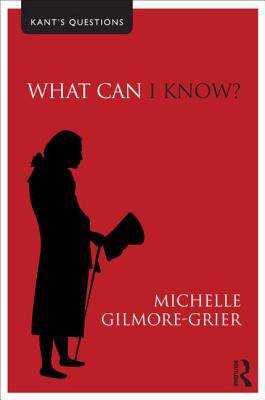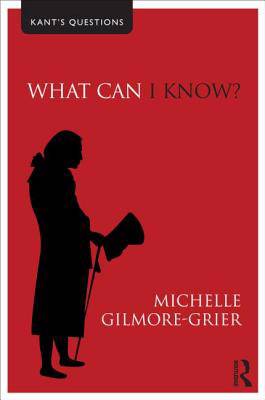
- Retrait gratuit dans votre magasin Club
- 7.000.000 titres dans notre catalogue
- Payer en toute sécurité
- Toujours un magasin près de chez vous
- Retrait gratuit dans votre magasin Club
- 7.000.0000 titres dans notre catalogue
- Payer en toute sécurité
- Toujours un magasin près de chez vous
Description
What can I Know? introduces and assesses what many consider to be the most important of all Kant's great questions, set out in his Critique of Pure Reason, and one of the most important in philosophy itself: what are the bounds of knowledge?
Michelle Grier begins with a helpful survey of the question prior to Kant, in particular the arguments of the rationalists Descartes, Spinoza and Leibniz and the empiricists, above all Hume. She describes, in a clear and engaging style, how Kant attempted to find a middle path between the two and what led to the famous Copernican turn in his philosophy. She explains the fundamental theories at the heart of Kant's epistemology: the distinction between appearances and 'things in themselves'; the transcendental unity of apperception; and Kant's arguments concerning space and time.
In the second part of the book, Grier introduces the main criticisms of Kant's philosophy, including those of Hegel and Nietzsche. The final part situates Kant's epistemology in the context of contemporary philosophical debates including those in cognitive science. These include a priori knowledge, correspondence versus coherentist theories of knowledge, 'naturalized' epistemology and perception.
Including helpful chapter summaries and guides to further reading, What Can I Know? Is an outstanding introduction to Kant's epistemology and the legacy of Kant's question itself.
Spécifications
Parties prenantes
- Auteur(s) :
- Editeur:
Contenu
- Nombre de pages :
- 240
- Langue:
- Anglais
- Collection :
Caractéristiques
- EAN:
- 9780415782937
- Date de parution :
- 03-12-23
- Format:
- Livre broché
- Format numérique:
- Trade paperback (VS)
- Dimensions :
- 156 mm x 234 mm

Les avis
Nous publions uniquement les avis qui respectent les conditions requises. Consultez nos conditions pour les avis.






